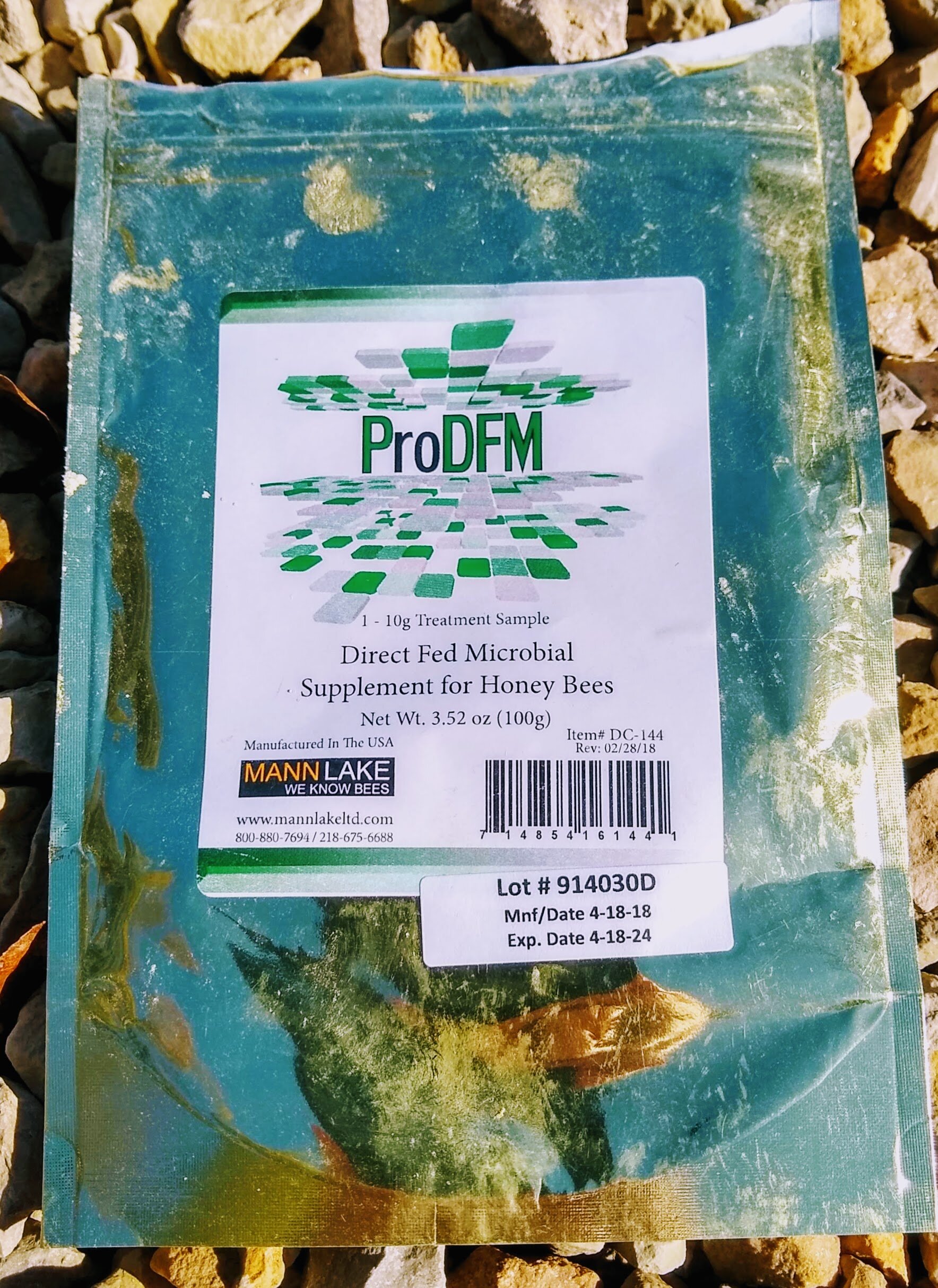Open feeding can be a contentious issue. I’ve discussed it before, and I remain of the belief that—as long as I don’t have neighbors who keep bees—open feeding is an efficient way to deliver food to provide for the overall welfare of my colonies without encourage robbing. Of course, sometimes I still feed individual high-need colonies internally, and I’m certainly open in the future to changing my mind about the safety of open feeding. In the meantime, I have cut back on the amount of feeding I do, both in and out of the hives—as soon as there’s some natural nectar available early in the spring, I stop feeding and let the bees forage. Okay, with that out of the way…
Honey bees flock to these feeder stations when there’s syrup set out for them
I used to feed my bees by placing syrup jugs on the floor of my open-air woodshed. Well, I lost a lot of syrup doing it that way, especially once the raccoons figured out how to unscrew the lids on my containers. So about a year ago I decided to build elevated feeding stations. What I settled on was using mailbox posts and bottom boards, and it’s worked out really well. The mailbox posts each cost about $20 and the solid bottom boards cost about $15. Throw in a bag of Quikcrete for another $5 and you’ve spent a total of $40 per feeding station. These seem to be impervious to squirrels, raccoons, and other four-legged critters, leaving a majority of the syrup to the bees—with just a little bit lost to yellowjackets and other wasps.
If you decide to make your own, I’ve got a couple tips for you. First, put a few extra washers/shims on the back side of the bottom board when you attach it to the post. This will slope the board forward and allow rainwater to shed off the front side. Without this modification, you are liable to drown visiting bees in pools of rain water. But even if you forget, you can always drill some holes in low spots on the bottom board to drain the water—which is what I’ve done. Second, be sure to put a good exterior stain or paint on your bottom boards before you assemble everything. This will help ensure your feeding stand will last for years without rotting. But hey, even if the wood does rot, you can replace it in about 5 minutes for $15, and your bees won’t miss a single meal.
My honey bee feeding stations double as bird feeders in the winter, when snow covers a lot of their wild forage


















